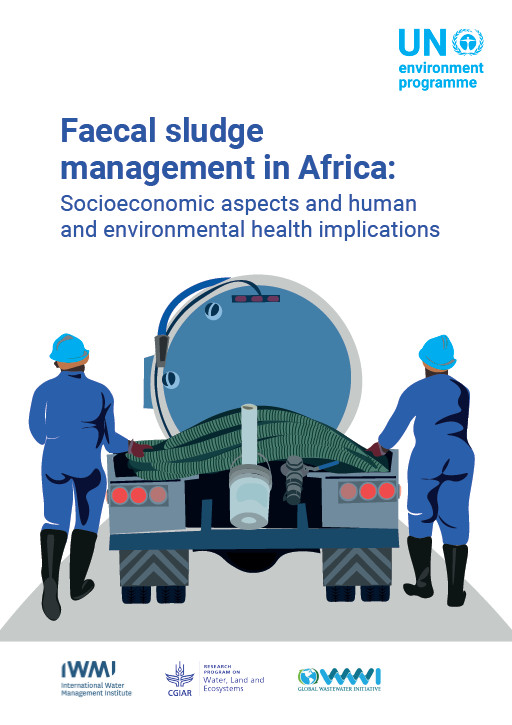Faecal sludge management in Africa: Socio-economic aspects, human and environmental health implications
 |
rapport Nov 2020 ; 64 pages
Ed. IWMI - Colombo UNEP - Nairobi ; Isbn: 978-92-807-3811-7
Téléchargeable sous format: PdF
Téléchargeable chez l'éditeur
Page de présentation d'un éditeur
Résumé:
Ce rapport explore les tendances actuelles de la gestion des boues fécales et la façon dont les mauvaises pratiques de gestion aggravent la santé humaine et environnementale en Afrique.
Le document met en évidence certaines solutions pour améliorer la gestion des eaux usées et la prestation de services d'assainissement, stimuler les investissements et s'appuyer sur les meilleures pratiques du continent. Il explore également comment l'amélioration de la gestion des boues fécales est fondamentale pour s'attaquer à la crise mondiale de l'assainissement et atteindre l'objectif de développement durable (ODD) 6 : eau et assainissement pour tous d'ici 2030.
Abstract:
This report explores current trends of fecal sludge management and how poor management practices worsen human and environmental health across Africa.
The paper highlights some solutions to enhance wastewater management and sanitation services delivery, boost investments, and build upon best practices from the continentand. It's also explores how improving faecal sludge management is fundamental to tackle the global sanitation crisis and achieve Sustainable Development Goal (SDG) 6: water and sanitation for all by 2030. Contents:
1. Introduction.7
2. Faecal sludge management and the sanitation challenge in Africa.13
2.1. Main constraints to sustainable management of wastewater and faecal sludge.14
2.2. Faecal sludge generation.14
2.3. Forms, composition, and implication for management.14
3. Trends in faecal sludge management along the sanitation service chain.21
3.1. Containment.22
3.2. Emptying, collection and transportation.23
3.3. Treatment.24
3.4. End use, disposal and recycling.24
3.5. Institutional arrangements and legal/regulatory frameworks.24
4. Good practices in faecal sludge management.29
4.1. West Africa.30
4.2. East Africa.32
4.3. Southern Africa.33
5. Environmental and health implications of faecal sludge management.35
5.1. Containment.37
5.2. collection and transportation.38
5.3. Faecal sludge treatment plants.39
6. Societal and economic impacts.43
7. Recommendations.49
Annex 1: Containment systems and mechanical emptying methods.51
Bibliography.54
Mots clefs: |
boues (gestion des ) (CI) (DT) (OP) (ope) , boues (traitement des ) (CI) (DT) (OP) (ope) , ODD Objectifs Développement Durable (CI) (DT) (OP) (ope) |
Editeurs/Diffuseurs: |
|
IWMI
-
International Water Management Institute - Colombo - Sri Lanka |
UNEP
-
United Nations Environment Programme - Nairobi - Kenya |
En cas de lien brisé, nous le mentionner à communication@pseau.org